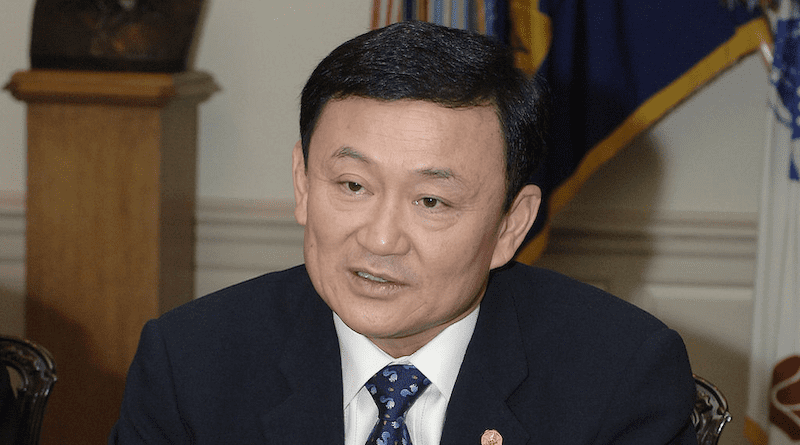Thailand: Ex-PM Thaksin Walks Free, But ‘At A Cost’
By BenarNews
By Nontarat Phaicharoen and Ruj Chuenban
The release of jailed former Prime Minister Thaksin Shinawatra just six months after he returned from 17 years of self-imposed exile highlights Thailand’s entrenched elitist politics and will further undermine faith in the justice system, analysts and activists say.
The billionaire telecoms tycoon and patriarch of the governing Pheu Thai party was freed on parole Sunday after spending the past six months almost entirely at a Bangkok hospital, bringing an end to a short-lived prison term that critics say reeked of privileged treatment.
The 74-year-old was jailed on corruption charges upon his return to Thailand last August but, within a fortnight, his eight-year sentence was slashed to one year by King Maha Vajiralongkorn (Rama X). All told, he spent fewer than 24 hours in a prison cell due to health reasons.
The perception of a special arrangement for Thaksin has spawned accusations of unequal treatment before the law and added to disillusionment with Thailand’s political system.
“This case is an example of a suspended sentence where the person didn’t spend a single day in prison,” said Pichit Chaimongkol, a leader of the Network of Thai Students and People for Reform.
“Thaksin’s return represented both an opportunity and a crisis. If he had served his sentence, it would have created an opportunity for reconciliation. But since he didn’t, it only reinforces the divisions in the justice system,” Pichit told BenarNews.
Thaksin was ousted as prime minister in a military coup in 2006 and fled Thailand in 2008 to escape a prison term for charges that, he maintained, were trumped up by Thailand’s pro-royal establishment.
His return from Dubai coincided with Pheu Thai forming a coalition government with several pro-establishment parties, a development that spurred speculation about a backroom deal between the former rivals.
Olarn Thinbangtieo, an associate professor at Burapha University’s Faculty of Political Science and Law, said Thaksin’s parole was likely to reinforce the view that Thailand’s elites have a “hidden agenda.”
“Even if Thaksin did not violate any law, it appears that the entire process was designed to benefit him. This is something the judicial system must take responsibility for,” he told BenarNews.
Pheu Thai now appeared to be willing to compromise more with pro-establishment political parties because they had a “common enemy in the Move Forward Party,” he said.
The progressive Move Forward party won the most votes in last year’s general election with a platform promising to reform the royal insult law, amend the constitution and break up monopolies.
But the party’s agenda drew the ire of conservative and pro-royal lawmakers in Parliament, who twice rebuffed the prime ministerial nomination of then-party leader Pita Limjaroenrat.
On Monday, Move Forward leader Chaithawat Tulathon said Thaksin’s release demonstrated the inequity of the Thai judicial system.
“Anyone who has been unfairly treated by a coup d’état or political persecution should receive justice,” he told reporters. “However, we should not endorse a method that reinforces a double standard in the judicial process and unequal treatment. This could be described as a privileged legal state.”
Thaksin was greeted by supporters and a scrum of media upon returning to his Bangkok home on Sunday morning. He arrived in a private van accompanied by his family, wearing a neck brace and a cast on his right arm. He did not give any interviews to the press or speak to supporters.
His daughter Paetongtarn Shinawatra, the leader of the Pheu Thai Party, posted a photo to Instagram of Thaksin sitting in shorts by a swimming pool.
“After not breathing air and seeing the sun on the outside for 180 days, and not being back to this house for 17 years … Dad came to sit outside like this. He sat there for quite some time.”
Despite his homecoming, Thaksin’s legal challenges are far from over. On Monday, he reported to the attorney general’s office over a lèse-majesté complaint stemming from a 2015 interview in South Korea.
He was granted bail at 500,000 baht (U.S. $13,800) and will return for questioning on April 10, said office spokesman Prayuth Petchkhun.
Lèse-majesté is the nation’s strict anti-royal defamation law which carries a prison term of up to 15 years. Thaksin has denied the charges.
Olarn, the political scientist, said Thaksin would continue to wield influence over Pheu Thai and the government, but he would have to compromise.
“The return of Thaksin can be seen as a negotiation among elites who feel defeated in the political arena, especially after the rise of the Move Forward Party,” Olarn said.
“This could be considered a normal part of politics, but it comes at a cost.”
Jon Preechawong in Bangkok contributed to this report.

